Updated 02/26/2018 New Studies
Human civilizations have had a long and complex relationship with mind-altering substances, an issue that remains true even today. Around two-thirds of American adults drink some form of alcohol, according to a Gallup poll, and a growing number of adults smoke marijuana as state laws and cultural norms continue to evolve.
Most people who choose to drink alcohol are responsible users, having a glass of wine with dinner, or occasionally a couple of drinks while watching sports or going out with friends. However, there are a minority of drinkers who cannot control their intake. Alcohol-related health and social issues alone cost nearly $250 billion per year, according to the Centers for Disease Control and Prevention.
Both preliminary research and anecdotes, however, suggest that cannabidiol (CBD) may be useful in helping to reduce harmful misuse and abuse of alcohol and other drugs. CBD, as we've talked about elsewhere, is not psychoactive and does not produce a high among people who use it as a supplement. Supplementation with CBD, therefore, would not be simply swapping one drug for another. Anecdotally, some people this author spoke to who previously drank on a daily basis reported cutting back on their drinking after beginning regimens of CBD dabs or vapes. These results might not necessarily be the norm for everyone who includes CBD in their supplementation, of course, but they do bear consideration.
Additionally, CBD has shown promise in a number of studies related to mental health issues. These issues include conditions related to behavioral regulation, like obsessive-compulsive disorder. They also include conditions that often occur alongside alcohol and drug misuse, including depression, anxiety, and post-traumatic stress disorder. Based on these findings, scholars have also decided to look more directly at whether CBD might have an effect on animal models of drug use and abuse.
A research team led by Lili Yang found that CBD was able to reduce the damage from binge drinking in animals. Their study examined mice that had developed binge drinking habits, and compared mice who received CBD to those that did not. The group of mice that received CBD supplementation showed less liver damage related to oxidative stress. CBD has been found in other studies to function as an antioxidant, which supports the idea that CBD might reduce liver damage. Yang et al. also found that CBD was able to induce liver cell behaviors that ensured proper regulation of how cells broke down fats and even disposed of alcohol-damaged cells. Their findings indicated that CBD significantly protected the liver cell counts and functioning of mice that had already become accustomed to binge drinking.
Other research has focused more on CBD's effects on the brain in regard to substance misuse. One claim that is sometimes leveled against the overuse of alcohol, marijuana, and other drugs is that they “fry your brain.” Any drug in excess can potentially be harmful, but a 2011 study by Demirakca et al. found that CBD exposure in a sample of chronic marijuana smokers was associated with higher grey matter concentrations. These findings indicated that CBD may potentially exert a protective effect on the brain by reducing damage due to inflammation. Earlier research by Gordon and Devinsky had indicated that CBD may even help avoid alcohol-related brain damage seen among people with epilepsy who abuse alcohol.
Among the most cutting-edge studies are those that suggest CBD may have a role in reducing cravings. Because endocannabinoid receptors can impact reward sensations and processes, it is possible that CBD treatments might impact how drug habits form. Katsidoni et al., in 2013, found that CBD administration reduced rats' perceptions of rewards for morphine, and lowered rats' preferences for that drug. Parker et al. (2004) found that CBD was effective in helping to reduce craving reactions for cocaine and amphetamine among rats as well, and noted that other studies found similar results for mice that had been acclimatized to alcohol.
Studies are still being done everyday with new findings. Recently a new study was done on the effects of cannabis and its use to reduce progressive stages of alcoholic liver disease. The 2018 study results suggest that cannabis and other cannabinoids can be associated with reduced incidence of liver disease in alcoholics. It also showed significantly lower odds for the development stages of liver disease. Check out some additional information about the newest, 2018 study here.
CBD may have not just one, but many roles, in helping to regulate and attenuate the cravings, habitual behaviors, and damage that can come from alcohol and heavy drug use. Future studies in these areas are definitely needed to better understand these connections.
Recovering from alcohol or substance abuse can often require professional treatment, but some people also find that supplementation during the recovery phase can be helpful. CBD supplements may be a possibility to look into if you or a loved one are in a state of recovery. Keep in touch with your health care professional, as well as family and friends if struggling with Alcohol or other substance misuse.
Do you have a question or comment about CBD? Let us know, and we will respond right away. In the meantime, sign up for our newsletters and visit our website DiscoverCBD.com regularly for the latest updates on research, legislation, and other news impacting you and cannabidiol.
Thank you for taking the time to read our blog! To get your very own Active CBD products, come into any one of our Discover CBD stores, on the web at discovercbd.com, facebook, or by simply calling us at, 719-358-7553 to place an order!



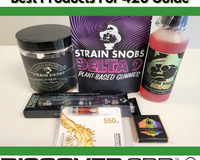
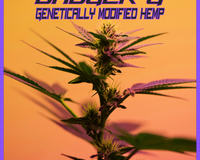
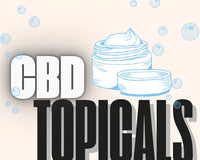
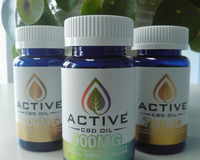
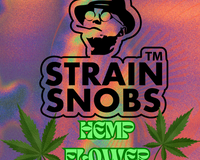
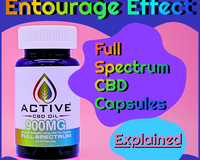
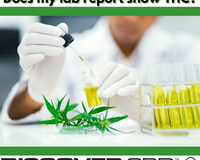
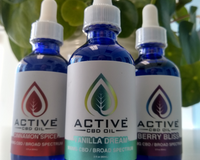


















1 comment
Jason Grau
I started taking CBD oil and even flower a couple of months ago for essential tremors. I am also a drinker. I have noticed since starting CBD my cravings for alcohol has dropped dramatically to the point i rarely have a taste for it. I wrote this down in my journal. Your article paralleled what I was experiencing.